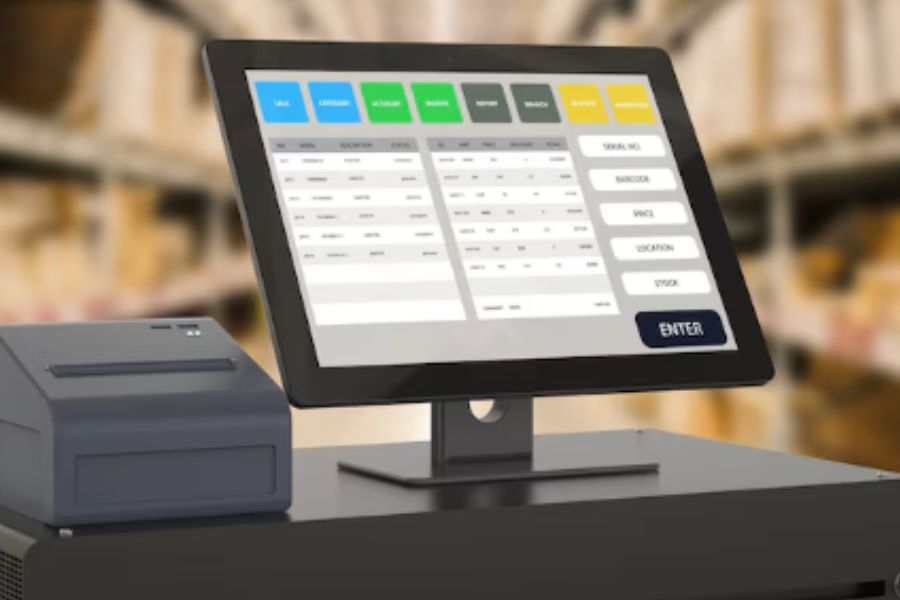SKU numbers are numeric or alphanumeric codes that assist businesses in tracking inventory. The majority of companies have their SKU number system. There are about 8 to 12 SKU characteristics, each representing a distinct product feature such as the item type, brand, design, or department to which it belongs.
What is an SKU?
SKU stands for Stock Keeping Unit. It’s a unique code assigned to each product (and sometimes even product variations) in a retailer’s inventory. Think of it like a fingerprint for each item you sell—it helps businesses track inventory, manage stock, and process sales accurately.
Difference between UPC Numbers and SKU Numbers
There might be confusion between SKU and UPC numbers since they are both on the same product price tag. Your staff must be able to distinguish the two terms to avoid costly mistakes with inventory management
The UPC is a 12-digit code printed along the bottom of the barcode and read by readers. Besides, UPC is not unique within stores. Two identical items will have different SKUs but obtain the same UPC numbers, which its manufacturer creates. With UPC numbers, people can obtain details like the manufacturer’s suggested retail price (MSRP). Besides, UPCs may also be used for conducting online product testing. An example of the UPC number is 0123456789012 for a shampoo bottle. Here, the first digit indicates the product type, the next five digits identify the manufacturer, the next five digits identify the product, and the last digit is a check digit.
If UPC numbers are commonly made up of a random collection of numbers, every character in an SKU number is carefully selected. In other words, the SKU is a unique code that retailers assign to each product in their inventory. Businesses indeed customize the SKU number to suit their specific needs. It can include information such as product category, department, supplier, size, color, and other attributes that distinguish products from each other. For example, an SKU number for a pair of jeans might look like this: JE-001-BL-32-30, where JE stands for jeans, 001 is the sequential number, BL is the color blue, and 32-30 is the size.
The main difference between UPC numbers and SKU numbers is that UPC numbers are universal and SKU numbers are specific to each retailer. UPC numbers help customers and retailers identify products quickly and accurately, while SKU numbers help retailers track inventory and manage product data efficiently.
Important of SKU numbers
The following sections are some of the highlighted advantages of having a well-organized SKU number system
Enhancing the Shopping Experience
By tracking SKU numbers accurately, you can properly organize your store so that your employees can locate their expected items quickly. Besides, customers can also easily find the products they are looking for, allowing retailers to enhance their customer service quality.
When customers place orders, SKUs help ensure accurate and efficient order fulfillment. The unique SKU assigned to each product variant helps prevent confusion or mistakes during the picking, packing, and shipping. It minimizes the chances of shipping the wrong item, size, or color to the customer.
Forecasting sales
The SKU number is a way of tracking inventory and managing products in a retail business. They are unique alphanumeric codes that include information about the product’s features. SKU numbers help retailers forecast sales and business needs by accurately tracking stock levels and identifying best-selling and slow-moving products.
For example, a retailer can use these numbers to see how many shirts of a specific size and color they have in stock, how fast they sell, and how much profit they generate. SKU numbers also help firms optimize their store layout, merchandising, and marketing strategies by grouping products based on their SKUs.
How to develop a SKU number system
As you can see, using an SKU number system for your inventory can significantly simplify the inventory management process. Some merchants still use manual methods for SKU related tasks. Having said that, due to the constantly changing retail industry, we strongly advise modern retailers to optimize inventory management by adopting POS systems.
To illustrate, ConnectPOS – a solution provided by ConnectRetail – is one of the most powerful POS systems in the recent market. With this solution, retailers can synchronize their inventory data in real-time and automatically generate meaningful reports that enable them to make timely decisions.
Select SKU number identifiers
Depending on your business requirements, here are some standard SKU number identifiers to consider:
- Product department
- Store location
- Suppliers
- Product feature
- Size
- Color
- Style
Create a unique top-level identifier
As mentioned above, an SKU number always includes from 8 to 12 characters. It is recommended that you should define the first two or three characters to be the top-level identifier. This informs you about the highest level of category that items can be placed.
Retailers can generate personalized shopping recommendations by analyzing the purchasing patterns associated with SKUs. They can suggest similar or complementary products based on a customer’s previous purchases, leading to a more tailored and engaging shopping experience.
Identify more product characteristics
Each SKU can be associated with a specific product name, providing a clear identification of the item and can be linked to detailed product descriptions, including features, specifications, materials, and other relevant information.
The following two to eight characters in your SKU number can be used to define more distinct product characteristics like size, color, brand, or design. Some companies prefer to use letters rather than numbers to prevent confusion.
Create a numerical sequence
Your SKU’s last two to three characters should be a sequential number. These numbers are basically used for assuring that the SKU is unique.
To sum up,
The SKU numbers play an important role in an efficient inventory management system since they greatly save retailers time and efforts to keep track of inventory as well as make timely decisions.
Besides, retailers can also consider adopting a robust POS system like ConnectPOS to enhance inventory managing proficiency.
Follow us for more information about technology and the retail industry!



